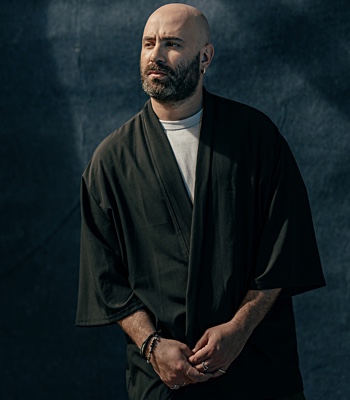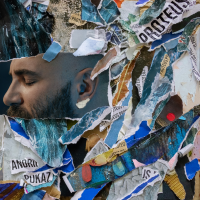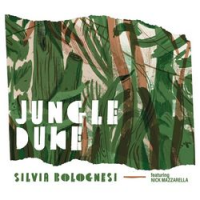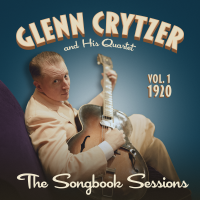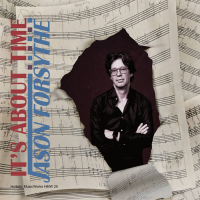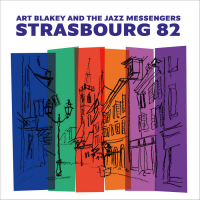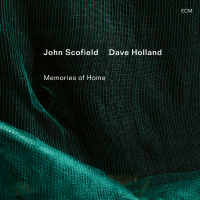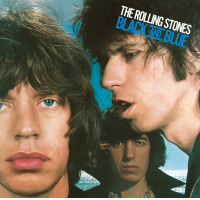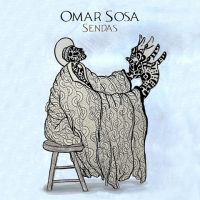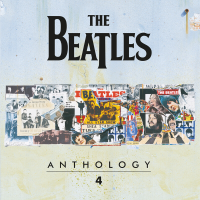Home » Jazz Articles » Album Review » Le Grand Kalle: His Life, His Music
Le Grand Kalle: His Life, His Music
This beautifully packaged and well researched 2CD compilation set includes a bound-in, 104-page book written by Congolese-music historian Ken Braun, who comments on all 38 tracks and puts them in their social and political contexts. The first CD spans 1951-1962, the second 1964-1970.
The first disc is the strongest. It includes some of Kabasele's most enduring recordings including his biggest hit, "Independance Cha Cha," released to celebrate Congo winning independence from Belgium in 1960. It is sublime and essential listening for anyone interested in the birth and early development of electric Congolese music.
The second disc is patchier. Kabasele seems to have been an extraordinarily nonchalant bandleader and on occasions during the 1960s he allowed his bands to drift away from him. The developing political situation in Congo was for him a destabilising factor: Kabasele had been a high-profile supporter of independent Congo's first leader, Patrice Lumumba, who was assassinated by the CIA in 1961, and Joseph Mobutu, who took power in a US-backed coup in 1965, was suspicious of Kabasele's political allegiances. (The guitarist and bandleader Franco, whose TPOK Jazz became Congo's pre-eminent band during the 1960s, was more careful not to provoke Mobutu's displeasure). Flashes of brilliance continued through the 1960s—"BB 69" was a well deserved hit in 1968—but as the decade progressed, Kabasele sometimes sounded like he was simply going through the motions. In 1969, feeling himself to be under surveillance and his freedom of movement limited, Kabasele left for Paris, where he formed the short-lived, Afro-Latin fusion band African Team with saxophonist Manu Dibango. From then on, Paris was his base. He returned home in the late 1970s, but worked and recorded in Europe. He died in Paris in 1983.
Despite parts of disc two being rather forgettable, the quality of the 68 minutes of music on disc one makes His Life, His Music a five-star contender for best Central African archive release of the year.
Track Listing
CD1: Valerine Regina; Kale Kalo; Parafifi; African Jazz; Baila; Tujala Tashibemba; Mokonzi Ya Mboka; Tembe Nye; Table Ronde; Naweli Boboto; Independance Cha Cha; Jamais Kolonga; Africa Bola Ngombi; Malalnga Ya Mobido; Kamulanga; Bana Na Nwa; Naboonnngisa Kala; Tika Ndeko Na Yo Te; Mama Ngai Habanera; African Jazz Mokili Mobimbo; Miwela Miwela; Bodingo Suka Te. CD2: Mindule Mipanzana; Jolie Nana; Nzambe E Mungu; Makwela Ya Bana Mboka; Merengue Fontaine; Biwela Biwela; Carrefour Addis Ababa; Butsana Mama; Lipop Ya Bolingo; Moselebende To Bolingo; Mbombo Ya Tshimbalanga; BB 69; Ko Ko Ko Qui Est La; Suzi Na Edo; Africa Boogaloo; Mokili Zala Ala Juste.
Personnel
Collective Personnel: Joseph Kabasele Tshamala (Le Grand Kallé), Marcellin Laboga, Dechaud, Rossignol, Roger Izeidi, Rochereau, Vicky, Jeannot Bombenga Wewando, Mathieu Kouka, Rolly, Freddie Nkounkou, Casino, Manu Dibango, Alexandre, Mayukuta, Mujos, Kwamy: vocals; Georges Doula, Albert Yamba-Yamba, Dechaud, Tino Baroza, Dr Nico, Dicky Baroza, Papa Noel, Damoiseau, Casino, Jerry: guitar; Albert Taumani, Roitelet, Joseph Mwena, Brazzos, Jeannot Dikoto Mandengue: bass; Fud, Isaac Musekiwa, Jean-Serge Essous, Nino, Andre Menga, Edo, Manu Dibango, Joseph Munange Ndosimao, Michel Yuma Kasongo, Don Gonzalo Fernandez: reeds and flutes; Willy, Jeef, Alphonse Bialo: trumpet; Gilbert Warnant, Many Dibango: keyboards; Baskis, Depuissant, Saturnin Pandi, Roger Izeidi, Petit Pierre, Charles Henault, Pepito, Casino: percussion; other unidentified personnel.
Album information
Title: His Life, His Music | Year Released: 2013 | Record Label: Sterns Music
Tags
PREVIOUS / NEXT
Support All About Jazz
 All About Jazz has been a pillar of jazz since 1995, championing it as an art form and, more importantly, supporting the musicians who make it. Our enduring commitment has made "AAJ" one of the most culturally important websites of its kind, read by hundreds of thousands of fans, musicians and industry figures every month.
All About Jazz has been a pillar of jazz since 1995, championing it as an art form and, more importantly, supporting the musicians who make it. Our enduring commitment has made "AAJ" one of the most culturally important websites of its kind, read by hundreds of thousands of fans, musicians and industry figures every month.








